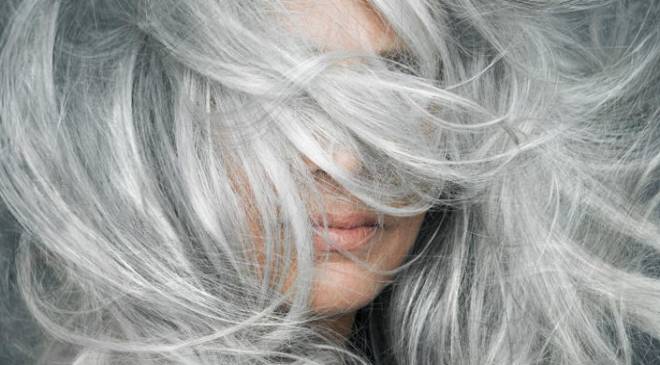If you find yourself itching your head, you may have dry skin or irritating dandruff. While these are bothersome, they’re not typically a cause for concern. But what does it mean when you notice a scab on your scalp? While just one might be from scratching your skin or an injury, it can be worrisome when there are multiple scabs or sores on your head.
Also Read– Why Biological Age Testing is the New 23AndMe
“Most often, an isolated scab on the scalp is not a reason for concern,” says Maya Thosani, M.D., dermatologist and owner of Modern Dermatology in Scottsdale, AZ. “They usually self-resolve without issue, unless the scab continuously gets ripped off by scratching, or styling the hair.” She adds that most scalp scabs are not caused by an injury or trauma (hitting your head on the trunk of your car or banging into a wall). Instead, she says they are more often from “some mild itching or irritation and self-heal with time.”

It’s important to figure out if what you see and feel is in fact a scab, though. “A scab is a dry crust of serum and blood that forms a protective crust over an injury or wound,” Dr. Thosani says. If you experience eczema or dandruff, excessive scratching on the scalp can even lead to scabbing. In this case, the best way to treat and prevent future scabs on the scalp would be to get to the root of the underlying problem.
Also Read– Millions who rely on Medicaid may be booted from program
There are some situations where scabs on a scalp can be a reason for concern. “Signs that scalp scabs may be related to an infection or underlying health condition include persistent itch, redness, pus, hair loss, or lack of response to over-the-counter treatments,” says Brendan Camp, M.D., board-certified dermatologist and dermatopathologist at MDCS Dermatology.
Ahead, discover causes for scabs on the scalp and how to treat each. Plus, some expert-recommended prevention methods.
Also Read- Biden administration doesn’t want doctors prescribing controlled substances remotely
Scabs on scalp causes
If your scalp scabs are not from a head injury, they may be caused by an underlying health condition, aggressive scratching, or an infection. “Health conditions often are accompanied by other areas of the body that are affected or a systemic health problem,” Dr. Thosani says. Ahead, find reasons for scabs on your scalp, according to experts.
Infection
Infections may target only your scalp and can have telling signs. “Scabs that are caused by an infection are often associated with pain, redness, warmth, and tenderness,” says Marisa Garshick, M.D., F.A.A.D., board-certified dermatologist at MDCS Dermatology. “If the scabs don’t heal, it is important to consider another health or skin condition.”
Dr. Thosani adds that pain and itching are often worse when it’s an infection, and says they may be accompanied by a bit of “yellow honey-colored crusting or some pustules will form in red inflamed skin areas.”
It’s always best to talk to a doctor when scabs persist or if you are unsure why you have them.
Treatment options: Treatment depends on the type of infection you’re experiencing, and often includes antibiotics.
Also Read- New Mexico governor pans Forest Service amid wild cow fight
Psoriasis
If you have redness and flakiness in the scalp, you could be dealing with psoriasis. Scalp psoriasis is an inflammatory and chronic autoimmune disease and is a common cause of scalp scabs and discolored patches of skin on and around the scalp. It can also affect other parts of the body. Dr. Thosani says the scalp is the most affected by psoriasis, but the elbows and knees can experience symptoms as well. Beyond scabs, symptoms of psoriasis include fine scaling, thick plaques, itching, bleeding, and a silver-gray sheen.
Psoriasis occurs when a person’s immune system incorrectly signals the skin cells to produce new cells too quickly. This causes an excess in skin cells that cause patches and scabs. Psoriasis is a life-long condition that can happen to anyone, but it is more common in patients of color and can be triggered by stress and injuries, according to the National Psoriasis Foundation.
Treatment options: A dermatologist can help diagnose your condition and prescribe medications and medicated shampoos to apply to the scalp. “In some cases, the scalp can be treated with topical shampoos such as T-Gel/T-Sal,” Dr. Thosani says. “In many cases, a dermatologist or other physician should be seen to help prescribe topical steroids and/or other prescriptions for treating the condition.”
The most common medications used to treat psoriasis are corticosteroids, which are available in shampoos, gels, sprays, oils, and ointments for topical applications. Other psoriasis treatment options include scale softeners, injections, and light treatments.
Also Read– Millions who rely on Medicaid may be booted from program
Seborrheic dermatitis
Seborrheic dermatitis, which is more commonly known as dandruff, is a skin inflammatory condition. Dr. Camp says it can be a cause for scalp scabs, and it also causes “flaky, pink patches on the scalp, eyebrows, ears, around the nose, and beard area.” Other symptoms include itchiness, rash, and temporary hair loss.
“Seborrheic dermatitis is a common scalp condition caused by overgrowth of microorganisms such as Pityrosporum and Malassezia,” Dr. Thosani says. Severe itching from dandruff can cause scabs on your scalp.
Treatment options: The most common treatment option is a dandruff shampoo. “[Seborrheic dermatitis] is often treated fairly easily by medicated shampoos that target either the organism (anti-dandruff shampoo containing Zinc Pyrithione or Selenium Sulfide), the inflammation (anti-inflammatory Neutrogena T-Gel with tar based shampoo), or the build-up of flaking (Salicylic Acid shampoos such as Neutrogena T-Sal which helps to dissolve excess scaly buildup),” Dr. Thosani says.
Also Read- Biden administration doesn’t want doctors prescribing controlled substances remotely
Contact dermatitis
Contact dermatitis develops when your skin is irritated or experiencing an allergic reaction to a substance. It causes itching, inflammation, a rash, cracked skin, blisters, and scabs. “The most common culprits are the shampoos, conditioners, hair dyes (especially the ones with paraphenylenediamine–a.k.a. PPD), and styling products,” Dr. Thosani says.
If your itching and rash extend past the scalp behind the ears and onto the neck, you are most likely allergic to your shampoo and conditioner since it rinses down your head as you wash your hair. Dr. Thosani says allergic reactions to hair dye will cause the whole scalp to feel like it’s burning, while styling products (mousse, oil, gel) will often cause the rash near the hairline.
Treatment options: The first step to take to treat contact dermatitis is to immediately stop using the product causing the allergic reaction. Your skin may clear up on its own in two to four weeks, but you can try some OTC anti-itch creams and ointments, such as 1% hydrocortisone cream or calamine lotion. You can also take an oral antihistamine or apply a cool, wet compress to ease the symptoms. If home care steps don’t ease signs and symptoms, your doctor can prescribe oral medications.
Also Read- New Mexico governor pans Forest Service amid wild cow fight
Folliculitis
Folliculitis is a form of inflammation in the skin that is caused by a bacterial infection in the hair follicles. It’s most commonly caused by staphylococcus aureus (staph), but can also be caused by fungi and viruses. “Early folliculitis lesions look like acne bumps, but as they heal they leave scabs behind on the scalp,” Dr. Camp says. Additional folliculitis symptoms include itchy skin, pain, burning sensation, and pus-filled blisters that can break open and create scabs.
Impetigo is often considered as a form of folliculitis as it is also caused by staph. This can also cause blisters and sores on the scalp.
Treatment options: If it is mild, the infection may go away on its own, but typically folliculitis requires prescription medication to fully treat it. A topical antibiotic can treat bacterial overgrowth, and antifungal creams and pills can treat folliculitis caused by yeast.
Also Read– Trump and Boris have both been treated unjustly
Dermatitis herpetiformis
Dermatitis herpetiformis (DH) is a chronic skin condition caused by gluten sensitivity. It creates small papules on parts of the body, including the scalp, that erupt and develop into lesions and scabs. A skin biopsy and blood test can diagnose you with DH.
Treatment options: After a diagnosis, doctors can prescribe sulfone dapsone, or other medications for immediate pain relief. The only permanent treatment option is following a gluten-free diet.
Also Read-Donald Trump may face protective order over evidence in classified documents case
Skin cancer on scalp
One of the more serious conditions that can lead to scabs is skin cancer. Dr. Thosani says it more commonly occurs in those with thinner (or no) hair, as their scalp is exposed to more sunlight. “It is more rare to get skin cancer on a scalp full of hair—however, it can happen!” Dr. Thosani says. “If a bleeding pimple-like lesion continues to scab and heal and re-scab in the same place on the scalp it is important to make sure it is not a Basal Cell Carcinoma.”
Precancerous lesions on the scalp can also lead to scabbing. “Sometimes an isolated red rough dry patch of skin forms and is slightly tender when exposed to sun—this can be a Squamous Cell Carcinoma, or a precancerous Actinic Keratosis,” Dr. Thosani says. Seeing a dermatologist can help you rule out skin cancer or detect precancerous lesions before they develop into something worse.
Treatment options: Treatment for skin cancer depends on the stage of the cancer. Topical chemotherapy can be used for localized basal cell carcinoma, while systemic chemotherapy is used for more advanced stages of cancer. Precancerous lesions can be treated with creams and outpatient procedures.
Also Read- Trump slams Republicans who voted to block censure resolution against Schiff
Acne
Acne can form anywhere on the skin but tends to focus on the face, shoulders, back, and chest. However, it can occur on the scalp, and this will often cause itching. “If some pustules form and they are scratched they will also form a scab,” Dr. Thosani says. “Most often scalp acne is mild, however, a severe problem can develop especially in men taking testosterone.”
Treatment options: If the acne is mild, you can try changing your hair products, removing oils from your hair routine, avoiding hats and headbands, and washing your hair more frequently. If the problem persists or worsens, a dermatologist can prescribe medications, such as antibiotics to destroy any bacteria, topical steroids, and isotretinoin.
Also Read– Hong Kong court rejects publisher Jimmy Lai’s bid to terminate his national security trial
Ringworm
Ringworm on the scalp is caused by a fungal infection and develops itchy, scaly patches and circular patches or hair loss. If ringworm is severe, it can develop Keroin, an inflammation that creates soft, raised lesions with pus. These swellings can break open and cause yellow scabs.
Treatment options: Prescription medication is needed to get rid of ringworm. This is typically oral antifungal medicine for one to three months.
Discoid lupus
Round, coin-shaped sores on the scalp can be caused by discoid lupus. This is an autoimmune disease with no known cause but can run in families. The lesions caused by discoid lupus are not painful or itchy, but they can be red and leave scars.
Treatment options: Doctors can prescribe medications to help manage symptoms, such as steroid ointments, anti-inflammatory drugs, and medications to suppress your immune system. To prevent future lesions, it’s recommended to wear sunscreen and protect your skin from the sun as UV light exposure can worsen symptoms.
Psychogenic conditions
If there is no skin condition or infection to cause the scratching, it could be a psychogenic condition causing aggressive scratching. “Anxiety disorders, depression, obsessive-compulsive disorders (OCD), delusional disorders, and others can be found to have scabs on the scalp,” Dr. Thosani says. “Those with this condition may have their disorder manifest by picking or scratching at the scalp causing bleeding and scab formation.”
Treatment options: To treat this type of condition you need to manage the underlying psychogenic cause. Some conditions can be managed with prescription medications and speaking with a therapist.
Scalp pruritus
Scalp pruritus is essentially just an itchy scalp—with no condition or infection causing the itching. “Scalp pruritus is where no rash is seen, and no cause for itching is found, but the sensation of itching is significant enough on the scalp that someone scratches and causes skin breakdown,” Dr. Thosani says. “This can be due to the characteristics of the scalp with abundant sensor nerves, and more hair follicles and oil glands with specific normal flora.” This is surprisingly a common phenomenon, as Dr. Thosani explains that “literature suggests a prevalence of 13-45% of people experiencing this.”
Treatment options: Research shows that using a shampoo with a pH of 4.5 to 6, or shampoo with menthol or camphor can help reduce scalp pruritus.
Head lice
Head lice are small insects that feed on blood from the scalp. Lice is most commonly found in children’s hair, but it’s highly contagious and adults can get it too. If your scalp is intensely itchy and you notice small white dots in your hair that are not flaky (like dandruff), you may have a lice infestation. Lice can cause aggressive scratching, which can lead to sores and scabs.
Treatment options: There are prescription and OTC medications, such as 5% Benzyl alcohol lotion. Medicated shampoos and special combs can help rid the hair of eggs and bugs as well.
How to treat scabs on scalp
Beyond the treatment options listed for each condition above, there are some general tips and methods to treat scabs on your scalp. If an isolated scab forms, you can try an over-the-counter healing ointment to treat it. “Scabs on the scalp can be treated similarly to scabs on the rest of the body which respond well to healing ointments containing petroleum jelly such as Vaseline, Aquaphor, or CeraVe Healing Ointment,” Dr. Garshick says.
If you’re dealing with tons of scabs or some sort of flare-up, a medicated shampoo will help soothe the itching, moisturize the scalp, and stop the scabs from forming in the first place. Dr. Thosani recommends using zinc pyrithione shampoos, such as Vanicream Free and Clear Medicated Anti-Dandruff Shampoo or Head and Shoulders Dandruff Shampoo.
Dr. Garshick also recommends anti-dandruff shampoos if the scabs are developing from seborrheic dermatitis, and says to look for ketoconazole or salicylic acid in the ingredients, such as Nizoral and Neutrogena T-Sal Shampoo.
“If scabs are persistent, they may require additional prescriptions such as topical or oral antibiotics or topical steroids,” Dr. Garshick says. Prescription options will target the infection or disease specifically to heal the scalp scabs.
Also Read– Today’s horoscope: Free daily horoscope for Thursday, July 20, 2023
How to prevent scabs on scalp
Preventing scabs is mostly the same as treating them—by addressing underlying causes. “Avoid picking the scalp, as scratches in the skin can lead to the formation of new scabs,” Dr. Camp says. “Consider using a scalp oil or conditioner, which can moisturize scalp skin and reduce scabs. Anti-dandruff shampoos that contain active ingredients like salicylic acid, coal tar, zinc, and selenium can help address itching and flaking.”
If you are experiencing recurring scabs on your scalp, a doctor can help you create a treatment plan to keep symptoms at bay and prevent more scabs.
When to see a doctor
If the over-the-counter regimens and dandruff shampoos are not effective, it’s time to see a doctor. “It is recommended to see a doctor if the issue persists, becomes painful, and/or is not clearing up or healing on its own,” Dr. Garshick says. Dermatologists can give an accurate diagnosis, and then prescribe you with medicated ointments and topical treatments to heal the scabs.
Also Read– Biden navigates pitfalls of being out front on transgender issues
While just one scab may not be a reason for concern, take note of how long the scab has been there as this can be a sign of skin cancer. “Any scalp scab that is present for more than a month without healing properly should be evaluated,” Dr. Thosani says. “It is important to rule out any worrisome growths, and if it is something benign, then your dermatologist can easily remove the area and help ease your pain from the scab.”
Try 200+ at home workout videos from Men’s Health, Women’s Health, Prevention, and more on All Out Studio free for 14 days!









































